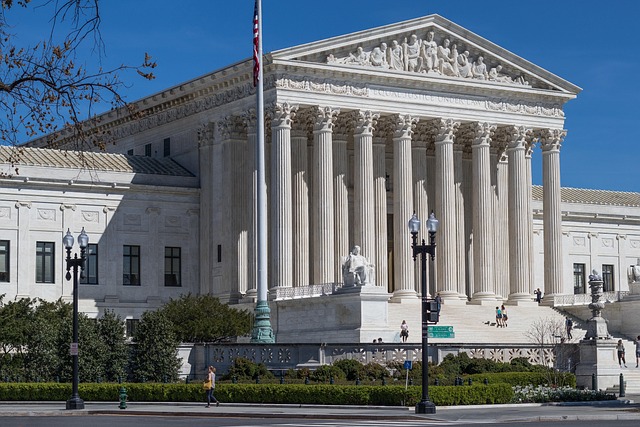
More Thoughts on NCN Litigation and Nationwide Injunctions
05.05.2025 | Linda J. Rosenthal, JD

There are desperate, continuing, needs for International humanitarian assistance; the range and scope of causes and priorities is daunting – and growing. Americans are eager to help, directly and indirectly, through existing U.S. charitable organizations or in response to crowdfunding and other emergency appeals.
Many 501(c)(3)s already include international operations or reach; others may be considering starting up or expanding to meet overseas needs. But any group that “provides charitable resources to organizations and individuals overseas, whether in the form of goods, cash, grants, or services” must be or become thoroughly familiar with the range of special rules that apply to these activities.
There is a “vast array of sanctions programs” that have been in effect for decades and stepped up since 9/11. While most people believe they apply only or primarily to terrorist organizations and arms dealers, they can and do apply more broadly, including to the nonprofit sector.
These important activities are not for the faint of heart, but there are ways to minimize the risk of running afoul of these laws.
Existing Sanctions Laws and Guidance
There are “significant civil and criminal penalties on any person, including nonprofit organizations, who finances or otherwise supports terrorism.”
In the period immediately after the September 11, 2001, terrorist attacks, Congress passed 18 U.S.C. section 2339C; it prohibits U.S. persons, including nonprofit organizations, from directly or indirectly financing terrorism. It also enacted 18 U.S.C. sections 2339A and 2339B prohibiting provision of material support or resources to terrorist organizations.
President George W. Bush issued Executive Order 13224 that prohibits U.S. persons, including nonprofit organizations, from transacting with entities or individuals that are designated by the Secretary of State or the Department of the Treasury to be associated with terrorism.
It is the Treasury Department’s Office of Foreign Assets Control (OFAC) that adds these “designated persons” to its Specially Designated Nationals List (SDN List). Treasury is authorized also to (1) “freeze their assets held in the U.S. or possessed or controlled by U.S. persons” and (2) “administer economic and trade sanctions programs against foreign countries, individuals, and groups engaged in activities that are considered a threat to U.S. national security or foreign policy.” For information about OFAC generally, see here.
The Treasury has issued some guidance for American nonprofits: see Anti-Terrorist Financing Guidelines: Voluntary Best Practices for U.S.-Based Charities (Guidelines) and a Risk Matrix for the Charitable Sector (Risk Matrix) “to assist nonprofit organizations in determining whether their proposed activities are at low-, medium-, or high-risk of funding terrorism. Nonprofit organizations should evaluate the Risk Matrix’s factors to determine what level of due diligence, screening, and monitoring is appropriate and necessary.”
In addition to these general laws, rules, and powers, in certain (extreme) instances, “humanitarian aid such as food, clothing, and medicine, can be prohibited with respect to a certain region or entity if the President believes that such aid would impair his or her response to a national emergency.” See section 1702(b)(2) of Chapter 35, International Emergency Executive Powers, Title 50 United States Code, War and National Defense.
The extraordinary “‘national emergency’ block” on humanitarian donations is alive and well; it “has been implemented regularly by both” the 44th and the 45th presidents.
Recent Sanctions Guidance
On May 2, 2019, the U.S. Treasury Department issued an important new publication: its Framework for OFAC Compliance Commitments introduced by an accompanying press release. The 12-page Framework is intended to be a summary of “best practices” for compliance programs of “organizations subject to U.S. jurisdiction, as well as foreign entities that conduct business in or with the United States, U.S. persons, or using U.S.-origin goods or services….”
“OFAC strongly encourages [these organizations] to employ a risk-based approach to sanctions compliance by developing, implementing, and routinely updating a sanctions compliance program (SCP).” Officials caution that “while each risk-based SCP will vary depending on a variety of factors—including the company’s size and sophistication, products and services, customers and counter-parties, and geographic locations—each program should be predicated on and incorporate at least five essential components of compliance: (1) management commitment; (2) risk assessment; (3) internal controls; (4) testing and auditing; and (5) training.
A key feature of this 5-step sanctions compliance program is a “compliance officer”: “an organizational ‘point person’” who handles compliance oversight and reporting.” The compliance officer must maintain direct, continuing contact with the organization’s board of directors for “reporting areas of concern and opportunities for improvement.” Similarly, the board must be “responsive to the compliance officer…, providing the “technology and resources necessary to effectively” carry on the compliance procedures. The compliance officer should also be responsible for evaluating available or special OFAC licenses for the group’s planned operations and activities.
Conclusion
This post is an introduction only to the extraordinarily complex laws of the United States on giving aid overseas. There is no one-size-fits-all formula, and the risk varies widely depending on many factors including: the target geographical region, the U.S. group’s prior contacts with or knowledge of foreign contacts and conduits, and the specific activities and aid involved.
